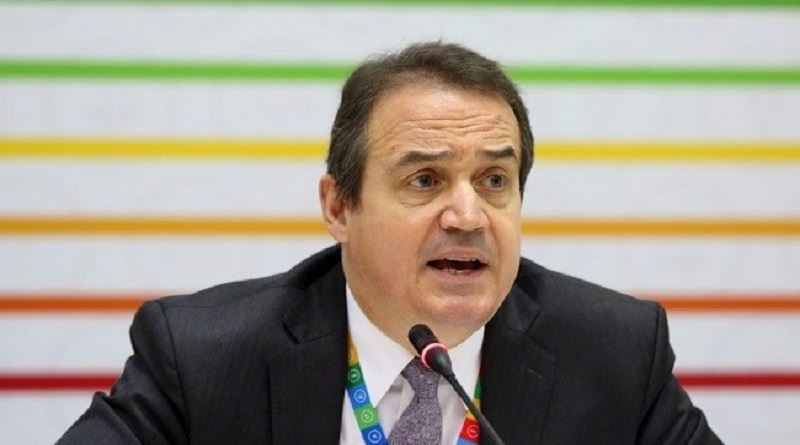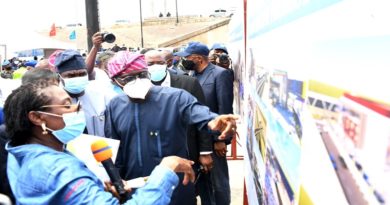GCF approves $440m climate resilience, low emissions projects
The 22nd meeting of the Green Climate Fund (GCF) Board ended on Thursday February 28, 2019, with a raft of decisions to strengthen GCF for its first replenishment. Following the selection of Yannick Glemarec as its new Executive Director at the start of the meeting, the Board then approved nine new climate resilience and low emission projects totaling USD 440 million in GCF resources, and took steps to strengthen operations, reinforce standards and close policy gaps. The meeting also approved the selection of nine new project partners to become Accredited Entities to GCF.
Co-Chair Nagmeldin Goutbi Elhassan Mahmoud stated, “We have taken a series of positive decisions at this Board meeting that set us on a path for a successful and ambitious replenishment of GCF, in particular the selection of Yannick Glemarec as our new Executive Director.”
Co-Chair Josceline Wheatley stated, “The Board has worked together in a positive spirit this week to expand our portfolio, improve our governance, and strengthen GCF’s operations.”
Javier Manzanares, Executive Director ad interim, stated, “GCF now has a USD 5 billion portfolio in 97 countries supporting low-emission, climate-resilient development. With decisions to ensure better governance, new project approvals, and a reinforced readiness programme, this Board meeting has left us in great shape for our first replenishment.”
The nine new project approvals bring GCF’s portfolio to a total of 102 projects and programmes, committing USD 5 billion of GCF resources for climate action in 97 developing countries. Including co-financing, the portfolio channels USD 17.7 billion in climate finance through its network of 84 Accredited Entities. The new approvals include the first REDD+ results-based payments to be financed, relating to the Brazilian Amazon.
Providing readiness support to build the capacity of developing countries is a key part of GCF’s activities. The Board took note of the evaluation of the Readiness and Preparatory Support Programme by the Independent Evaluation Unit and adopted a work programme and budget that builds upon the evaluation findings and recommendations and provides USD 122.5 million for 2019 for a new phase of readiness support to developing countries.
Ahead of a pledging conference for the first replenishment of GCF later this year, the Board meeting also moved to complete the policies and standards that guide GCF’s climate activities. New investment criteria indicators will strengthen the implementation of the investment framework, whilst a policy on cancellation and restructuring of projects will further reinforce the good management of its portfolio of projects. The Board also welcomed recommendations from the Independent Evaluation Unit on how to improve the Results Management Framework, as well as a management response and action plan. The adoption of a policy on protection from sexual exploitation, sexual abuse and sexual harassment, together with guidelines and procedures for the Independent Redress Mechanism ensures that GCF remains at the forefront of international efforts on safeguards and standards.
The twenty second GCF Board meeting approved the following projects and programmes:
– FP100 – USD 96.5 million for REDD+ results-based payments for results achieved by Brazil in the Amazon biome in 2014 and 2015 with UNDP
– FP101 – USD 8.0 million for Resilient Rural Belize (Be-Resilient) with IFAD
– FP102 – USD 29.6 million for Mali solar rural electrification project with BOAD
– FP103 – USD 18.8 million for Promotion of Climate-Friendly Cooking: Kenya and Senegal with GIZ
-FP104 – USD 100 million for Nigeria Solar IPP Support Program with AFC
-FP105 – USD 69.6 million for BOAD Climate Finance Facility to Scale Up Solar Energy Investments in Francophone West Africa LDCs in Benin, Burkina Faso, Guinea-Bissau, Mali, the Niger, and Togo with BOAD
– FP106 – USD 100 million for Embedded Generation Investment Programme (EGIP) in South Africa with DBSA
The following projects were also approved under the Simplified Approval Process (SAP):
– SAP005 – USD 9.0 million for Enhanced climate resilience of rural communities in central and north Benin through the implementation of ecosystem-based adaptation (EbA) in forest and agricultural landscapes with UN Environment
-SAP006 – USD 8.9 million for Building resilience of communities living in landscapes threatened under climate change through an ecosystems-based adaptation approach in Namibia with EIF
The GCF Board also approved the accreditation application of the following entities:
-Alternative Energy Promotion Centre (AEPC) based in Nepal
-Environmental Project Implementation Unit (EPIU) of the Ministry of Nature Protection of the Republic of Armenia
– Fondo Mexicano para la Conservación de la Naturaleza A.C. (FMCN) based in Mexico
– National Fund for Environment and Climate (FNEC) of Benin
– Pacific Community (SPC) based in New Caledonia
– JS Bank Limited (JS Bank) based in Pakistan
– Attijariwafa Bank (AWB) based in Morocco
– Macquarie Alternative Assets Management Limited (MAAML) based in Australia
– Luxembourg Agency for Development Cooperation (LuxDev) based in Luxembourg




